GAINS OF CONSISTENCY IN LEGISLATION: A CASE STUDY OF GBAJAMILA, DOGARA, MAJE WASE AND BENI LAR By Elias Nankap Lamle (PhD: Leuven. Cum Laude)
- Home /
- blog post
GAINS OF CONSISTENCY IN LEGISLATION: A CASE STUDY OF GBAJAMILA, DOGARA, MAJE WASE AND BENI LAR By Elias Nankap Lamle (PhD: Leuven. Cum Laude)
Listen, think and vote your conscience. Your constituents will not always agree with you, but they will respect you for thinking through the issues and leveling with them.
—Senator Leticia Van De Putte, Texas
A philosopher Russell Bertrand once declared that it is the cooperate social responsibility of academia to educate society. Societies with high rates of appropriate education have lower crime, better overall health, and civic involvement. Not getting suitable education can lead to a cycle of poverty and violence. People perish when they have starry-eyed tutelage. It’s on this premise that I am here as an academic to enlighten us on the significance of maintaining consistent legislation rather than perambulate and end up with haphazard laws.
I will begin by interrogating the topic because of some discrepancies that I observed. I presume that the organizers of this inauguration are trying to bring out the justification for maintaining legislatures vis-à-vis promoting wholesome legislation. This is because the main topic reads, “Gains of consistency in legislation”, the sub-topic should have mentioned some legislations or legislative sessions rather than legislators. As such to bring in the legislatures as subtopics, I am assuming that they are questing for the gains of consistency in maintaining good legislators rather than legislation. To this effect, I would rather interrogate the legislatures and look at how they have made debuts and the need to maintain them rather than bringing new breeds that will diminish the gains already acquired taking into cognizance the peculiarity of the Tarok nation at this vulnerable period. My quest here is to delve into what makes these legislatures wholesome. Thus, we will examine the legislative attributes of GBAJAMILA, DOGARA, MAJE WASE, AND BENI LAR and then draw a parallel on what makes them unique before justifying the facilitation of Ndangmar 2023 for Hon. Barr. Beni.
VIRTUOUS LEGISLATURES: THE A CASE STUDY OF HON GBAJAMILA, HON. DOGARA, HON. MAJE AND HON. BENI LAR.
HON. AHMED WASE
Hon. Ahmed Wase was elected into a Chamber of the National Assembly in 2007 and is currently serving his fourth term as a member of the House of Representatives, Wase Federal Constituency. He worked in the following committees as Member House Of Representatives: Federal Character, Environment, Emergency & Disaster, Public Account, Area Council, Housing and Habitat, Capital Market, Poverty Alleviation, Petroleum (Upstream), Justice, Public Petitions and Labour, and Youth and Employment Head of Section.
Hon. Ahmed Wase has demonstrated to his constituents that good governance and quality representation is possible hence the positive impact to the masses, giving priority to Education, Health, Good Road, and water as his legislative interest. Also accredited to him are the following; Sponsorship of Students Scholarships, Infrastructural Development which includes: Solar Street lights, Hand pump, and Motorized Bores-holes, Renovation of Primary Healthcare Centres, Building of Skills Acquisition Centres, lobbying for the Construction of Roads and Renovation of Secondary and Primary Schools, etc.
He is an effective advocate for Youth Empowerment and Poverty Alleviation. He has achieved these through issuing grants to the Youths and providing welfare packages to the less privileged.
HON. YAKUBU DOGARA
2006, Hon. Yakubu Dogara contested to represent the Bogoro/Dass/Tafawa-Balewa constituency at the Federal House of Representatives. His bid proved successful and he had been a member of the House since 2007.
His legislative interests include tenancy, regulating monopolies, company law, and intellectual property. He has sponsored many bills and undertaken several assignments. Hon. Dogara chaired two House committees, namely the House Committee on Customs and Excise, and the House Services Committee. During this period, he was also a member of the House committees on Judiciary, Capital Markets and Institutions, Foreign Affairs, Rural Development, and Power, among others.
During the Seventh Assembly (2011-2015), he served as Chairman of the Committee on House Services and Welfare, and as a member of others including Judiciary, Land Transport, Labour, Employment and Productivity, Steel Development, and Legislative Budget and Research.
SPEAKERSHIP
Hon. Dogara was elected Speaker on June 9, 2015. Upon winning the contest, he introduced a legislative agenda for the Eighth House which would serve as its guiding document for a period of four years. Dogara has also been lauded for his ability to manage the affairs of the House effectively and for quelling the leadership crisis in the house.
NORTH-EAST INITIATIVES
Hon. Dogara is a strong advocate for the reconstruction, rehabilitation, and recovery of the North-East region of Nigeria, which has been ravaged by six years of insurgency. He made history as the first-ever Speaker to step down from his seat to sponsor a motion when he raised a motion on the urgent need for rehabilitation, reconstruction, recovery, and development of the North-East zone of Nigeria.
NOT TOO YOUNG TO RUN
Hon. Dogara is an active supporter of the Not Too Young To Run campaign, which aims to secure representation for Nigeria's youth in the political process by lowering the age of eligibility for elective offices.
LOCAL GOVERNMENT AUTONOMY
Hon. Dogara, as Speaker, has advocated extensively for local government autonomy in Nigeria.
BUDGET REFORMS
The Legislative Agenda for the Eighth House - which Hon. Dogara leads - has a section on budget reforms
LEGISLATIVE INTERVENTION ON ECONOMIC RECESSION
Due to dwindling revenue from oil and the alleged mismanagement of funds by the administration of former President Goodluck Jonathan, the Nigerian economy slipped into a recession shortly after President Muhammadu Buhari was sworn in. Upon resumption from the Christmas/New Year recess in 2017, Dogara declared that the House must focus mainly on economic growth and rejuvenation by granting expeditious passage to legislation such as the Public Procurement Act Amendment Bill, the Federal Competition Bill, and the Petroleum Industry Bill.
HON. OLUFEMI HAKEEM GBAJABIAMILA
Speaker of Nigeria's 9th House of Representatives. Hon. Bajabiamila started his journey in politics when he joined the defunct Alliance for Democracy (AD) and won his first term election in the House of Representatives in 2003. He represents the Surulere I constituency of Lagos State in the House of Representatives. He was re-elected in 2007 and elected as Action Congress (AC) leader and Minority Whip of the House. His first term in the House demonstrated his true passion for issues concerning his constituents and Nigeria as a whole, he worked passionately to address matters of great concern to him and quickly earned a reputation as a true and brilliant legislator.
A true believer in qualitative representation, he took an active part in debates on the floor of the House and was fast recognized as one of the brilliant minds in the National Assembly. He was always on the side of truth and justice and his view truly reflected the wishes and aspirations of his constituents.
Bills and motions he supported, among others, were the Employee Rights Bill, Local content in Construction Industry Bill, Vocational Schools Bill, The Economic Stimulus Bill, Interest-Free Students Loan, and Establishment of Nigeria Education Bank Bill.
In 2011, Hon. Gbajabiamila contested and won a third term on the platform of Action Congress of Nigeria (ACN). He was again re-elected ACN leader and leader of the opposition in the House. Hon. Gbajabiamila was the Minority Leader of the House of Representatives in the 7th National Assembly. Hon. Gbajabiamila was however elected Leader of the 8th House of Representatives on July 28, 2015.
After his re-election at the 2019 general election, the APC announced him as the party’s candidate to head the 9th House.
HON. BENI LAR
In 2007, she was elected to the House of Representatives. In 2008, she served as the House of Representatives Chair on Women's affairs. As of July 2014, she represents the Langtang North and South constituency. She serves as Chairman of the House of Representatives' Committee on Human Rights.
She has supported emergency funding for the National Agency for the Prohibition of Trafficking in Persons (NAPTIP), increased penalties for child abuse, and the creation of a National Child Protection and Enforcement Agency. In 2010, she participated in The GlobalPOWER® Women Network in Africa: Women Parliamentarians and Ministers United Against HIV/AIDS. She was one of only 11 women elected in 2007 who was re-elected in 2011 when the lower house was nearly 95% male.
After 2013 attacks by herdsmen in Langtang South left seventy people dead, she urged the Nigerian Federal government to improve the conditions of local roads, so as to make it possible for security forces to arrive in a timely manner.
In May 2014, she led a group of protesters from Nigerians Unite Against Terrorism, wearing T-shirts "with the inscription "#ReleaseOurGirls.", showing solidarity with the Nigerian military in its efforts to rescue the victims of the Chibok schoolgirls kidnapping.
Hon. Beni Lar has been used as an example of strong women in government. She has advocated for more women in government and is part of a new trend of more women in government than ever before following Nigeria's independence in 1960.
She has advocated for women's rights such as the age of women to marry, abortion rights, and had a hand in the bills: The abolition of all forms of discrimination against women in Nigeria and other matters bill, and the Gender and Equal Opportunities Bill.
In 2017 Hon. Beni Lar spoke as the House Chair for the Science and Technology Committee and urged for the advancement of sustainable, reliable power for Nigeria. She also has advocated for the option for students to choose what kind of religion they would like to learn about in school, rather than having a predetermined requirement. She presented this to the House and it was passed in part because of her point that because Nigeria is a secular state, religion and national values should be separated.
POLITICAL HISTORY
Hon. Beni Lar served as
- Chairman of the House of Representatives’ Committee on Human Rights.
- Committee Member at Millennium Development Goals Committee 2015.
- Chairman of Science & Technology Committee 2015.
- Committee Member at Science & Technology Committee 2015.
- Chairman of Human Rights Committee 2015.
- Committee Member at Police Affairs Committee 2015.
- Committee Member at Rules & Business Committee 2015.
- Committee Member at Women Affairs & Social Development Committee 2015.
- Committee Member at Works Committee 2015.
- Committee Member at Population Committee 2015.
PARALLELS DAWN ON GBAJAMILA, DOGARA, MAJE WASE, AND BENI LAR
Haven analyzed the achievements of the four legislatures what makes them unique is what makes a good legislature, we will in this section draw a parallel on what seems to be the qualities that bring out the noble legislatures in them. As wholesome legislatures, they tried to appeal to the best instincts of their electorate, talk about what they stand for and what they intend to do during their time in office, then work as hard as they can to fulfill those promises. As a respectable legislature, they run for office to make a difference, a difference for the better.
As decent legislators, they take the high road by ensuring that ‘If it won’t “read good” tomorrow, don’t do it today. They took care not to be embarrassed to see their actions negatively reported in the newspaper by making sure they understand the state’s ethics codes and adhere to them. New legislators are rarely prepared for close scrutiny of their behavior, nor do they recognize the effect of their behavior on the institution. Understanding legislative etiquette and ethical responsibilities are vital, not only to the institution and these constituents but to themselves.
As noble legislators, they had to master the rules. Play volleyball or tennis without knowing the rules? You’ll lose. The same goes for legislating. Thus, these seasoned legislators know the rules and keep them. They also knew experienced parliamentary experts (legislators and staff) and seek their advice routinely. They do not fool themselves by presuming that they have conquered the rules-they knew that there is always someone in the chamber who can challenge them. Thus experience matters in this context.
These legislators knew where to Get Help. As upright legislators, they acquainted themselves with staff members, not only legislative staff but key people in the government and cabinet offices. Look for expertise among members on both sides of the aisle. They engaged them for advice and counsel. As good legislators, they knew how to engages lobbyists that can serve as social capitals to secure needed resources for their constituencies.
These respectable legislators knew how to manage their time. An effective legislator’s creed is to organize, prioritize, and commit to those things they consider important. These legislators knew how to gets to the floor on time, get to their appointments on time, get to their committee meetings on time. It’s the little things that trip up-like deadlines. Any failure on these premises has a very massive implication.
These legislators developed their specialty. No one is an expert in all things thus a good legislature focuses his or her policy pursuits so to get a few tasks very well by being selective in the bills they introduce. He or she decides the two or three issues they are going to specialize in and make a difference. These legislators did not try to be all things to all people but pursue committee assignments in their areas of interest, get appointed to a task force, and help negotiate an issue even if they aren’t the major sponsors of a bill. As good legislators, they developed negotiating skills and builds a reputation as a serious lawmaker among their colleagues and outside the legislature.
Reputable legislators Vote their own Conscience. They acknowledge that their constituents sent them to the legislative houses, and they must represent them. But they also know that they are trustees of the entire nation. Sometimes a hot issue presents nearly irreconcilable conflicts among these responsibilities, but as noble legislators, they still had to come to a decision and vote. Thus the four legislators made the commitments to communicate with their constituents about how they evaluate issues and arrive at decisions. That allows them not only to represent by listening but also to represent by leading, by shaping opinions. It gave them the latitude with people who may not always agree with them, but who will respect them for thinking through issues.
These legislators learn not to burn their bridges. A good legislator is going to disagree and become upset and sometimes even dislike another legislator but will always remember that today’s adversary may be tomorrow’s ally, so always learn how to disagree without being disagreeable. These legislators did not react emotionally or in anger on the floor to something someone has said because they are aware that things they say in these cases will come back to haunt them.
As decent legislators, they kept their Words. Ben Franklin was right when said, “Honesty is the best policy in life and in the legislature”. A legislator’s effectiveness and reputation are only as good as his or her word. Without truth, there can be no trust. If a good legislature promises someone his vote, he delivers. A good working relationship, whether with fellow legislators or your constituents, depends on their ability to believe what you say. Sometimes after a good legislature has promised to vote a certain way, and he or she gets additional information that changes his or her mind. When this happens, a good legislature will tell the people about the change of mind. These four legislators know that credibility is key around the legislature; one can’t be effective if one is perceived as untrustworthy.
As worthy legislators, they stayed in Touch With their Constituents. This is an overwhelming task, but it’s critical. They return phone calls, answer e-mails and letters, and have town meetings. They Let Their Constituents know that they are approachable and responsible, and represent them. Besides, it makes the job a lot more interesting if the legislature really knows the people they represent. It’s difficult to build a bond with constituents simply through press releases.
As noble legislators, they became Problem Solvers. Controversial, even inflammatory issues arose in their legislatures district. As respectable legislators, they used their skills in the office to help the community find solutions. They assiduously worked with the state agencies and local governments to find the best solution. As worthy legislators, they did not take sides on clearly local issues but serve as a resource for information to help find the best solution.
These attributes helped these four to rise up the ladder of their progression in the legislators some of them became speakers and deputy speakers. It the consistency in the legislators that gave them the impetus to contribute to the growth and development of their Constituents and they have made their debut. The advantage is that their Constituents trust them and gave them the opportunity to rise. Today Tarokland has groomed Beni Lar to this enviable position. Allowing her to go back to the House again will garner more respect and give her the ability to rise to the position of even the speaker in the House of Representatives which will add more value to realizing the dreams and aspirations of the Tarok nation. Since this is now the only available opportunity for the Tarok nation to begin another rising back to glory, it will be noble for the Tarok nation to allow an experienced legislator like Hon. Beni Lar to go back so as to ensure a more robust social power and social capital which the Tarok nation will use to get back into political relevance. Allowing an inexperienced person to come into this office will lower our capacity to make any meaningful impact, as he or she will go to the starting line with no social capital. Thus, the Tarok people need NDANGMAR of Beni Lar to continue so as to allow us to make relevance knowing that the future will bring in more impact. This is Ndangmar's return of the jaganut Beni Lar. Otarok a wallang ga Ndagmar ba chit
It’s significant to know that the first three legislatures actually spend a lot of time climbing the ladder until they become speakers. It is because, within the house, even the sitting arrangement is graduated according to the time when the legislatures came into the house. So the older legislatures have more social capital and make more impact than younger legislatures. Thus the Ndangmar in this context is needed because Beni Lar will engage here huge social capital of sustained sturdy activities in the legislature to attract more resources than coming in with new blood that will not understand the organization and mechanization of the legislature to do anything meaningful in the house. This Ndangmar must move out in full force to ensure we make good out of the only available political option for us at this time in question. The collective interest of the Tarok nation must rise above any personal interest because we are getting politically moribund. We do not need to be told that the Plateau State we live in, everything is undertaken to make sure that the Tarok people are irrelevant in matters that have to do with the state. For example, after installing Dora into the position of Senator, the Tarok nation is told she cannot have any benefit of the position, thus no one is given any legislative position in her office. This is the time for the Tarok nation to Ndangmar for Hon Beni Lar for our collective interest.
TAROK NATION, THE BLAME GAME AND THE QUEST FOR SUSTAINABLE UNITE
O Tarok, I am seeing a critical issue cropping up among us in Tarokland concerning the citing of the Federal Polytechnic in Shendam. This issue is further creating a deeper divide among us and it concerns me that most of the issues raised are not tangible and cannot hold water in the face of critical analysis. Thus, it's my desire that I should contribute by critically analyzing the issues if perchance I could clear doubts and help my people stop this blame game which is creating the storm of hatred and unnecessary dived which is the desire of our detractors.
I am in no wise trying to make any defense of anyone. Mine is just to try and be critical in my thinking. I will in no wise live in a fool’s paradise by thinking that my positions here will not be criticized. All I desire is that such criticism should be as objective as possible and lead to more unity among people in Tarokland. May I also indulge my audience to please listen and read through and comprehend my position before laying out theirs so as not to make mountains out of molehills. The citing of the Federal Polytechnic in Shendam has more of a political undertone than an existential one, therefore I will try to examine the role of political leaders in this undertaking so as to clear doubts and stop the unreasonable blame game.
A close look at the role of Tarok politicians will reveal that our politicians only undertook their civic responsibility in their quest for the citing of the same Federal Polytechnic in Langtang. It is germane again to know that it’s our legislators that went out to seek possibilities to get the Federal Polytechnic sited in Langtang. Particularly, Senator Gen. JT Useni sponsored a bill in the Nigerian Senate toward this desire. In lieu of this, I will want us to properly understand the role of the legislature in a democratic setting such as Nigeria.
The first and foremost function of a legislature in any democratic setup is to legislate i.e. to make laws. In ancient times, laws used to be either derived from customs, traditions and religious scriptures or were issued by the kings as their commands. However, in the contemporary era of democracy, the legislature is the chief source of law. The legislative branch of government is responsible for enacting the laws of the state and appropriating the money necessary to operate the government. In a democracy generally, the following are the functions of Legislature:
- Law-Making.
- Control over the Budget.
- Control over Executive.
- Judicial.
- Electoral.
- Amendment of the Constitution.
- A Minor of Public Opinion.
- Right of the Legislature to remove the Judges.
You will find there is no definite power allotted to the legislator in determining where and how a project is located. That is the exclusive preserve of the executives. Even though the executives need the backing of the legislatures to make the laws that govern the institutions or project but as to how and where they are located, it is the executives who hold the sway.
In most advanced democracies the legislatures have a role to play on how projects are cited by making it mandatory for the Executives to cite projects due to the necessity of the people. Such is not the case in most developing democracies. One of the worse case scenarios is that of the Nigerian executives who have an overriding position on the legislature.
The overriding attitude of the Nigerian executives towards the legislatures will be more understood if one looks at the writing of Ambrose Onyisi Ekpu1 Patrick Ikechukwu Iweoha who asserts that the executive arm of the government in Nigeria is vehement in objecting to any amendments, modifications, and alterations made to the annual budgetary estimates prepared by the executive and placed before the National Assembly as it affects various ministries and government departments. The duo argues that the function of the legislative arm is simply to ‘rubber stamp’ the budget estimates and wait to see how the executives dance across the budget without any form of interference from the legislature. From the above, you can deduce that the Executives refuse to allow any legislatures to in any way interrupt into its function of ensuring that what they say stands as the final cannon. From this standpoint, any bill passed by any legislature is not mandatory for the executives to follow. The executives can make their own decisions away from whatever bill is passed at the legislating houses. This gives the executives an overriding role on bills passed in the legislating houses.
Accessing from this vintage position, it’s fundamental to also know that the Executives have the sole responsibility to ensure projects are cited where they deem fit depending on the power of lobbying not just the passing of bills. It’s the reason where projects are cited all over the country without due consideration to the viability of the sites where they are positioned. A critical analysis reveals that all over the country, projects and institutions are cited without due consideration to their sustainability. Government industries are located without looking at its economic capability; institutions are cited where cows, herders, and reptiles compete over the lives of the workers and students. Thus institutions of higher learning are cited in forests and water-ridden areas while projects are cited in the deserts. This gives a clear picture of how the Federal polytechnic is cited away from the initial bill which was properly documented and orchestrated by Senator Gen. JT Useni. Instead of the executives considering the viability of Langtang where there are many academics and social amenities that could help augment the institutions that will be located there, they would prefer the citing in Shendam due to political mechanizations, manipulations, and gerrymandering.
Political manipulations and gerrymandering has quintessential implications and plays the most important impetus in the citing of the Federal Polytechnic in Shendam or Langtang since the two federal legislative houses propose the two and passed them into laws. This is to say that anyone who has the ability to influence the executives will drive the Polytechnic to his or her domain. The implication here is that the social capital of Senator Gen. JT Useni in dragging the polytechnic to Langtang will determine its citing as against the social capital of Shendam people in taking the same institution to Shendam. Let us not forget that Lalong’s (a sitting governor over the state) social capital with the Federal executives is more substantial than any legislative could offer. The Tarok nation should realize that as sitting governor and the chairman of the Northern Governors Forum in the person of Lalong, the Shendam people have much vintage position over the Langtang people who only have legislatures and an incapacitated minister who was reprehensibly removed and is currently barking against the federal executives faulting President Buhari's administration as against a sitting governor praising the same President and asking for the same Federal Polytechnic. It’s very clear that the President who is looking for praise singers in the face of a gross malady of a ministration will definitely favor its praises singer the governor. Thus, to load it on any of our sons or daughter as the cause of not citing the Federal polytechnic in Langtang will not only be faulty but a dismal to the sensibility of the Tarok nation.
It will be a misnomer for the Tarok nation to crawl into their shell saying they have no social capital to have influenced the citing of the Federal Polytechnics in Langtang because consideration should be given to the fact that the President and Senator Gen. JT Useni have some degree of commonality within themselves as social capital. History denotes clearly that Senator Gen. JT Useni has more social capital with the President being that they come from the same constituency as army generals and that Senator Gen. JT Useni was influential in getting Buhari appointed as the head of the ever famous Petroleum Trust Fund during the regime of Abacha. Common sense avails that it was time for General Buhari to pay back good for good to Senator Gen. JT Useni by accenting to his desire for the citing of the Federal Polytechnic in Langtang. This is not the case, as the love of cows seems to carry more social capital than the camaraderie of the armed forces between Buhari and Senator Gen JT Useni in the army and during the regime of Abacha. Thus the executives under the mantle of Buhari truncated the wish of army camaraderie by giving ears to political maneuverings and gerrymandering.
Having explored the power play that took place in the citing of the Federal Polytechnic in Shendam than Langtang a more viable option, I will want to examine some misgivings that are perpetuated to cause divisions’ in Tarok land concerning this citing. The most prominent of such misgivings is the assertion that Hon. Beni Lar truncated the placements of Federal Polytechnic in Langtang so as to advance her political position in Tarokland. Let us examine the merits of this position.
From the analysis above we can agree that the legislatures are only responsible for passing a bill but do not have a say in its execution. How could we expect a person such as Hon. Beni Lar to have the ability to engage an executive that does not respect the history of its social interactions to ever listen to the child of a person that stood against the Buhari regime as junta in 1984? The saying that the Fulani vis-à-vis Buhari as a person has little capacity to forgive, how would the daughter of a political giant such as Chief Solomon Lar who opposed the junta regime of Buhari in 1984 to hold any swear with Buhari?
It is clear that there is no role that Beni Lar could play in this power game of locating the Federal Polytechnic in Langtang or Shendam because she does not have the necessary social capital to play such a game. She neither has the cow social capital or the camaraderie in the army or elsewhere. In fact, she has a negative social capital to have any influence in the location of the Federal Polytechnic. Her social capital is limited within the political class where her name and that of the father hold some string of social capital in engaging political and social resources, which she is using to attract federal presence to Tarokland. We can see that in the following Federal institutions which are within her constituency as ahead of one of the committees in the House of Representatives. These are institutions located in Langtang North and South, which is the Federal Constituency of Hon. Ben Lar.
- National Agency for Science and Engineering Infrastructure
- National Board for Technology Incubation
- Nigerian Building & Road Research Institute
- Nigerian Institute Of Leather And Science Technology
- Federal Institute of Industrial Research
- National Research Institute For Chemical Technology
- Bioresource Development Centre
While some are Regional centers others are States Centers which are spread all over to Langtang North-South. This list of federal presence in Tarokland is a clear indication of Hon. Ben Lar’s progressive mind in developing Tarokland. Her ability to solicit and attract these projects stem from her role as the committee leader of her committee constituency in the House of Representatives. It should be noted that the citing of the Federal Polytechnic is within the preserve of the education committee where she does not hold the same way. Thus to attribute the failure of the citing of the Federal polytechnic in Langtang on Hon. Beni Lar is a misnomer and should be resisted by the entire Tarok nation which is known for telling the truth, naming and shaming all forms of falsification.
Another falsified flame position that seems to be peddled against the person of Hon. Beni Lar is the assertion that instead of supporting the bill for the Federal polytechnic she went ahead to propose a University of Agriculture in Gangnim in Langtang South. This accusation is whimsical because a progressive mind will see that the proposal of Hon. Beni Lar is another attempt to increase to Tarokland rather than bring down an already established legislation. How can the legislation for a University of Agriculture in the House of Representatives bring down legislation in another House of the Senate? My mind does not see the relatedness of the two. The relationship does not hold water. Does it then mean that Komsol who proposed the same University of Agriculture in Namu was working against the person that proposed the bill for citing the Federal Polytechnic in Shendam? If for any reason I do not hear the Shendam people fighting Komsol for proposing the University of Agriculture in Namu when there is already another bill for the Federal Polytechnic in Shendam, how come the Tarok nation is out crying defective play in the same vein? All I see is the detractors of Tarokland who are out to bring down the Unity of the people. It will be within the context for the Tarok nation to disabuse its mind from such flimsy thinking by driving away elements of disunity that are trying their best to divide Tarokland for the sake of their selfish end.
My take on the Bill that Hon. Beni Lar sponsored for the establishment of the Federal University of Agriculture in Gangnim is within context since there is the existing structure of the biotechnical institute of the federal government which is linked with the University of Jos. That ends her power as she ensures that the bill was passed. But the social capital to get it cited there is complexly out of her hands. And may I tell the Tarok nation that we should try to unite and seek for the social capital that we can use to get the University of Agriculture to be cited in Gangnim so that the Federal Government will not end up citing the same institution in Namu as proposed in the legislative quest of Komsol. Ours in Tarokland is to stop the blame game and look for avenues to consolidate our social capital. Ndangmar for Beni 2023 captures this essence.

About Admin - Admin
TarokTv, ...Reporting the obvious.
Contact
Phone number: 07062319173
Email: [email protected]
Reach out to us with any news or article.
leave a comment
3 comments
Latest Articles
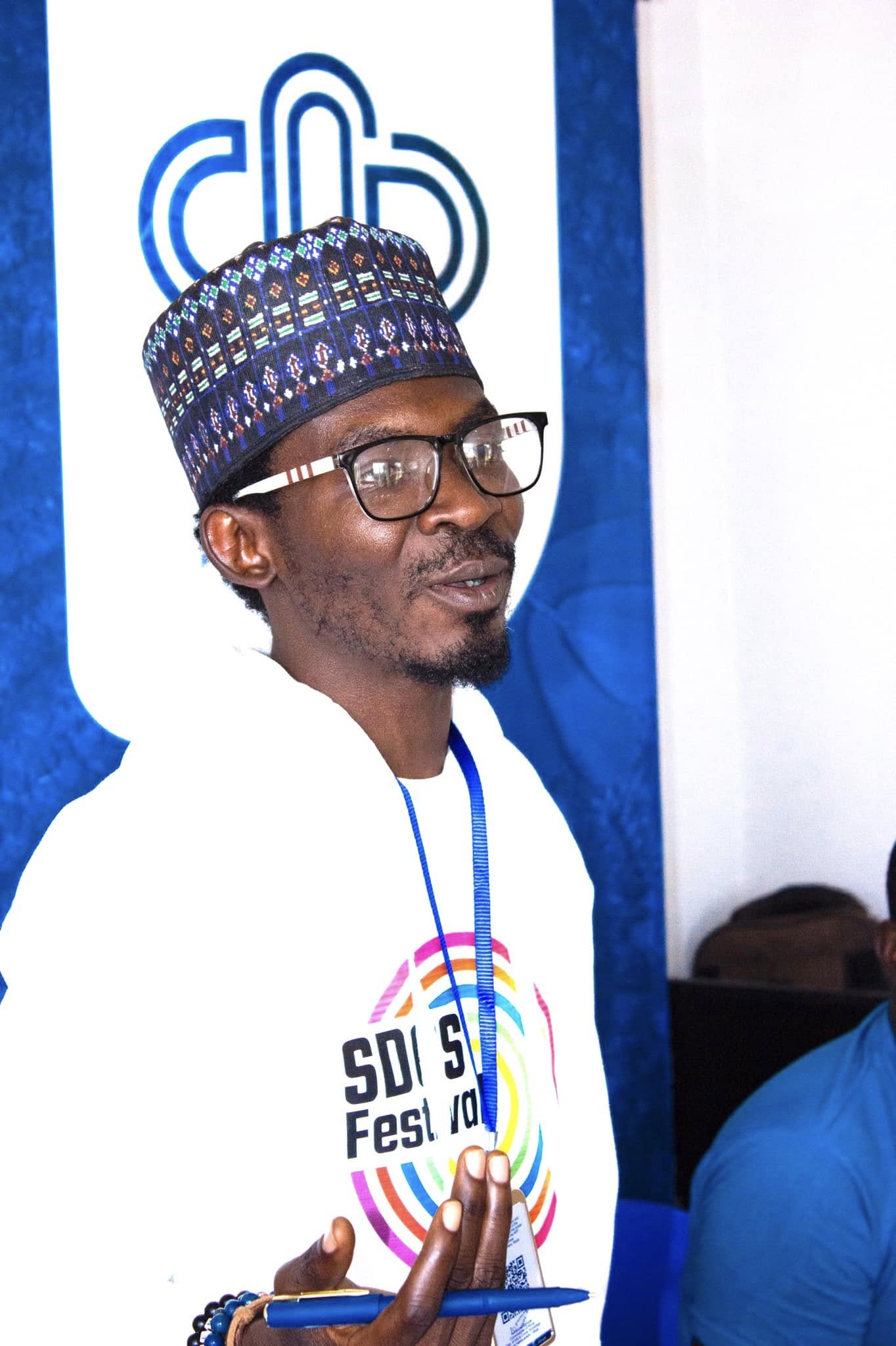
Success leaves clues, and those who seek to make a difference must study the lives of those who…
read more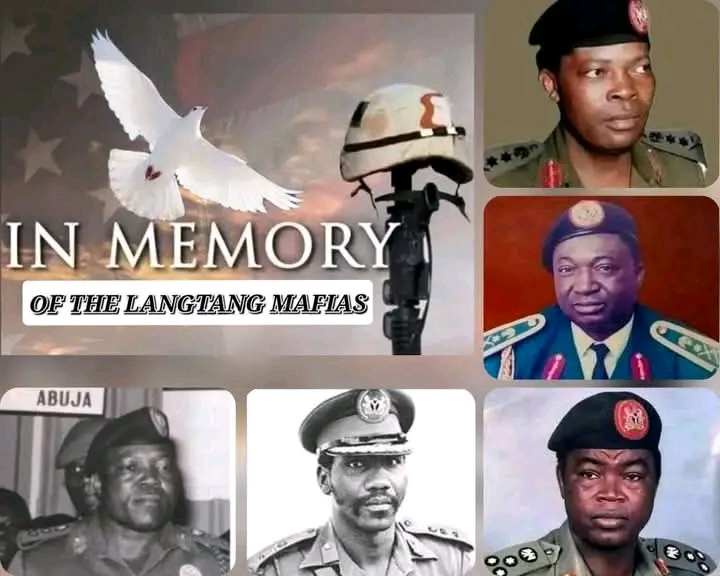
Langtang, a town in Plateau State, Nigeria, is not just another dot on the map but a significant origin for…
read more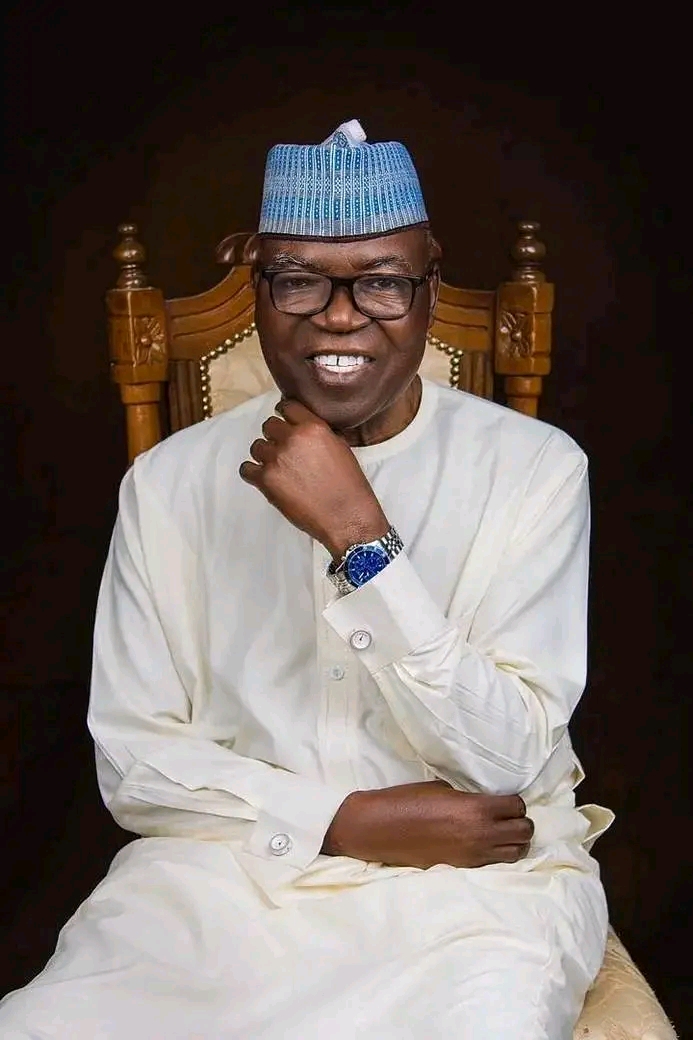
Brief Biography of Gen. (Senator) Jeremiah Timbut Useni
Early Life and Education:
Jeremiah Timbut Useni, often referred to as "Jerry Boy," was born on February 16, 1943,…
read more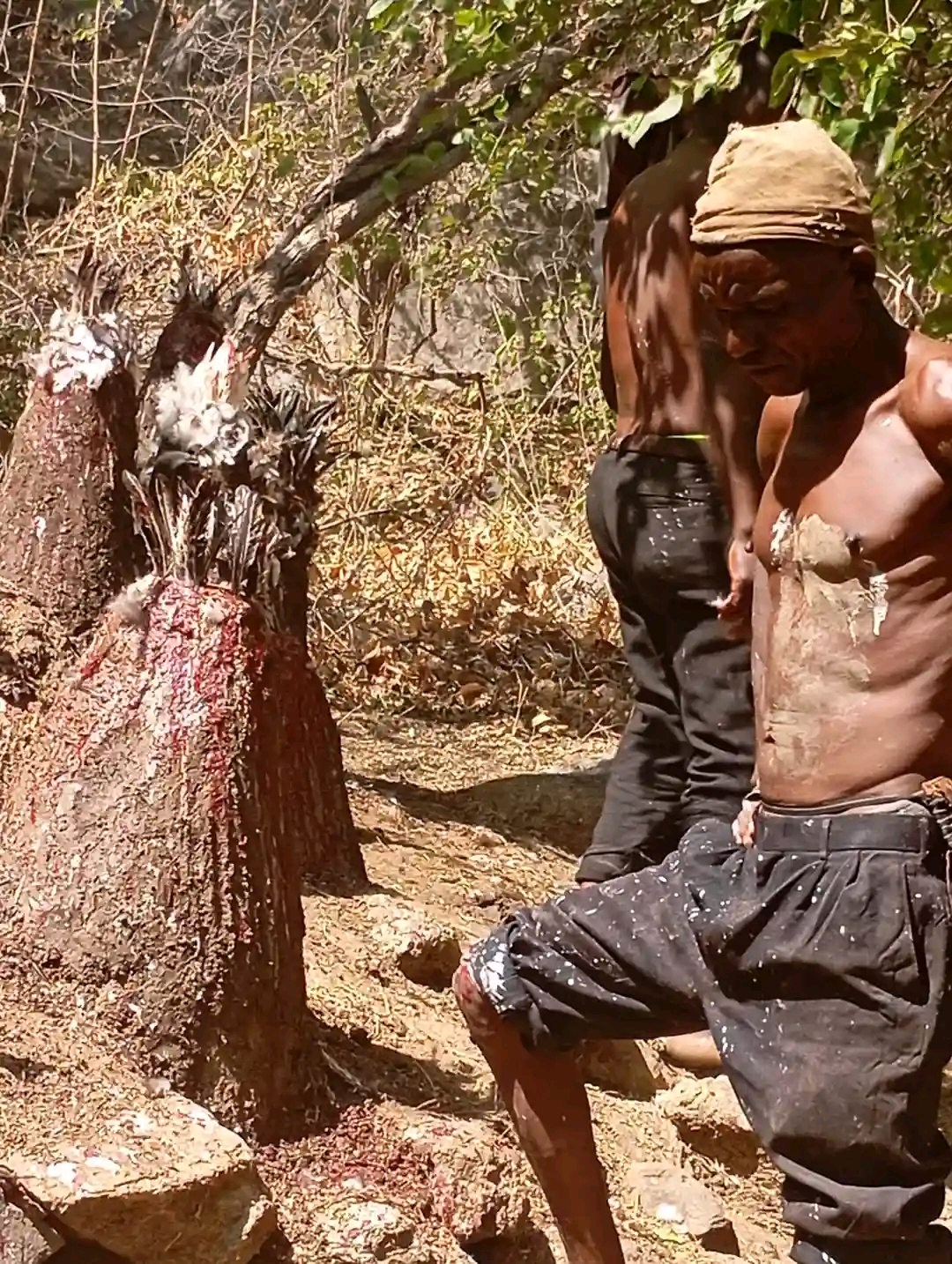
The Ibiari: A Sacred Tradition in Tarok land
The Ibiari Oga Sa festival, an annual tradition in Tarokland, was celebrated today as part of the year-end observance marking…
read more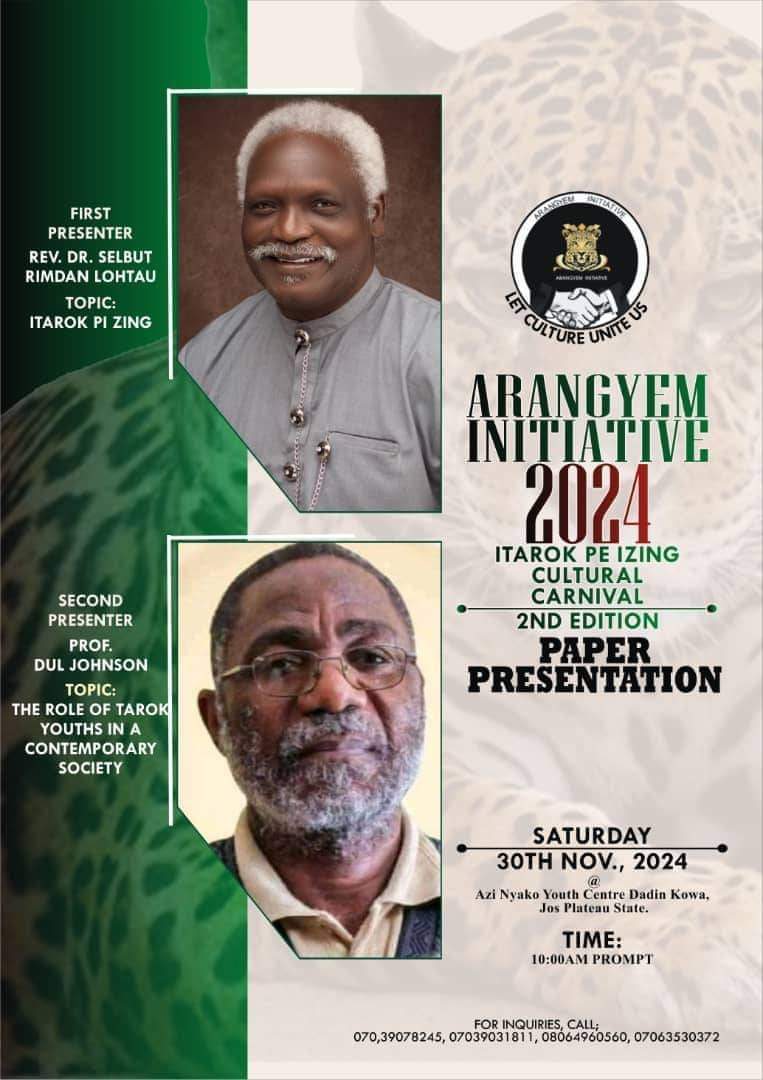
ITAROK PA IZING BY REV. DR. SELBUT LONGTAU
A PAPER PRESENTATION AT ITAROK PA IZING 2ND CARNIVAL HELD AT THE AZI NYAKO YOUTH CENTRE, JOS, 30TH NOVEMBER, 2024
… read more
TarokTv News: The Return of "Gathering of Bookworms" - A Literary Revival in Langtang North/South
TarokTv is thrilled to announce the upcoming edition of the Gathering of Bookworms, a celebrated event aimed at uniting the…
read moreLatest Albums
Recent videos
Copyright © 2020 - TarokTv designed by Taroktv Media.

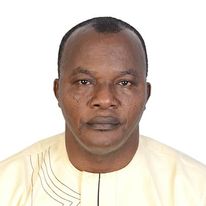
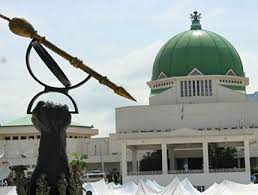
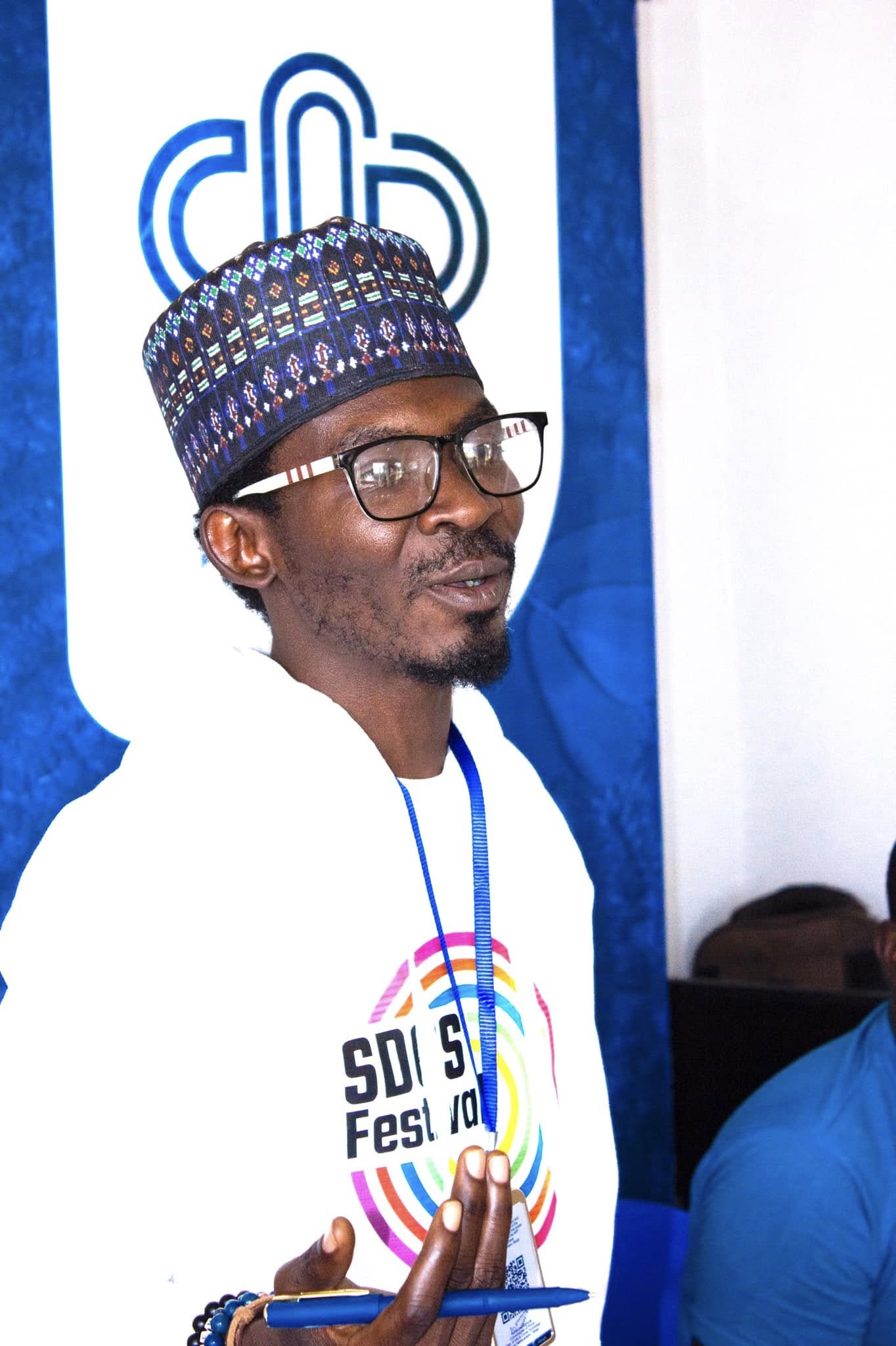
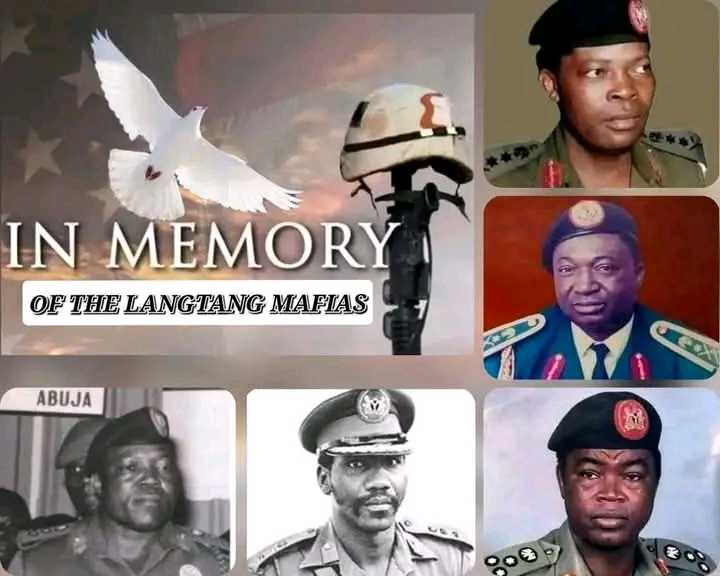
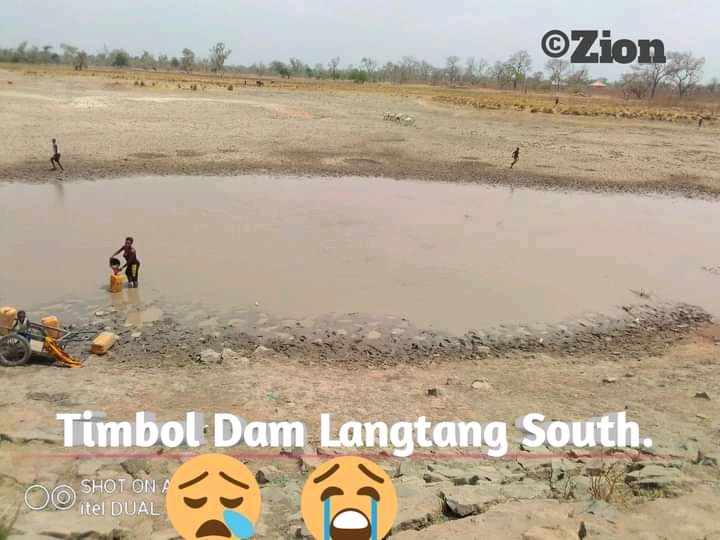


Please I need a copy